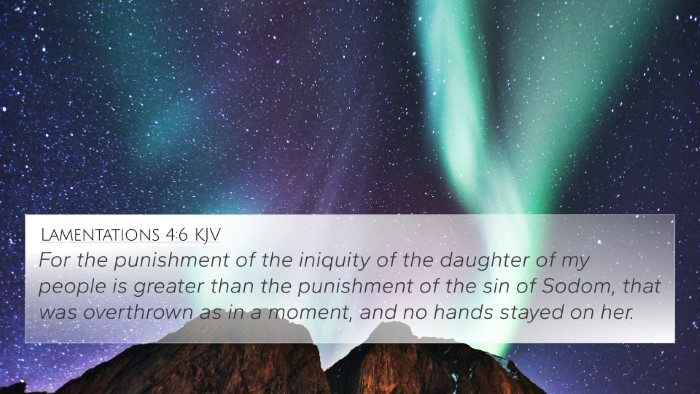Understanding Revelation 18:17
The verse Revelation 18:17 states:
"For in one hour so great riches is come to nought. And every shipmaster, and all the company in ships, and sailors, and as many as trade by sea, stood afar off."
This verse is part of a larger narrative describing the fall of Babylon the Great, symbolizing worldly power and wealth. It portrays the devastation that follows as a result of divine judgment.
Summary of Commentary Insights
Insights from various public domain commentaries, such as those by Matthew Henry, Albert Barnes, and Adam Clarke, provide a rich understanding of this verse:
- Matthew Henry:
Henry emphasizes the swiftness of judgment upon Babylon’s wealth, illustrating how quickly earthly treasures can become worthless in the eyes of God. The lament of the merchants signifies the grief over lost riches.
- Albert Barnes:
Barnes highlights the role of seafaring merchants and shipmasters who depended on the riches of Babylon. The sudden loss underscores a prophetic warning about the temporary nature of material wealth and the ultimate futility of trading in spiritual decay.
- Adam Clarke:
Clarke provides a theological perspective on the destruction of Babylon, noting the irony that the very means of commerce that built its wealth now testifies against it in its downfall. This invokes a sense of accountability for nations that pursue greed over righteousness.
Thematic Bible Verse Connections
Revelation 18:17 can be cross-referenced with several other verses that underline themes of judgment and the transience of worldly wealth:
- James 5:1-3: A warning about the miseries that wealth can bring, correlating the rich’s eventual downfall with their hoarding of treasures.
- 1 Timothy 6:9-10: Discussing the dangers of the love of money, reinforcing the idea that greed leads to destruction.
- Lamentations 1:1: The desolation of a once-great city serves as a parallel to Babylon's fate, echoing sorrow over lost glory.
- Matthew 6:19-21: Encouragement to lay up treasures in heaven rather than on earth, focusing on eternal wealth rather than temporary riches.
- Isaiah 47:15: It speaks of the consequences of relying on worldly sorcery and commerce, showing the dire end awaiting such societies.
- Proverbs 23:4-5: A reminder that riches can take wings and fly away, echoing the transient nature of worldly gain.
- Revelation 18:10: This verse directly relates to the sentiment of the merchants as they mourn the destruction of Babylon.
Comparative Bible Verse Analysis
The analysis of Revelation 18:17 in comparison to other biblical texts can reveal deeper meanings. Various methodologies can aid in this study:
- Cross-referencing Biblical texts: Utilizing tools like a Bible concordance can uncover connections across scriptures.
- Exploring thematic connections: Identifying overarching biblical themes can enrich understanding of verses like Revelation 18:17.
- Engaging in inter-Biblical dialogue: This methodology is vital for understanding the prophetic role of Revelation within the full biblical narrative.
Tools and Resources
To delve deeper into the study of this verse and its connections, several resources and tools can be invaluable:
- Bible concordance for locating specific references.
- Bible cross-reference guide to facilitate finding related verses.
- Comprehensive Bible cross-reference materials for a thorough study.
User Intent and Search Queries
When studying Revelation 18:17, one might ask:
- What verses are related to Revelation 18:17?
- Find cross-references for Revelation 18:17.
- How do Revelation 18:17 and Matthew 6:19 connect?
Conclusion
Revelation 18:17 serves as a potent reminder of the fleeting nature of earthly wealth and the swift consequences of turning away from divine principles. Through careful study and cross-referencing, believers can gain profound insights into its message and apply these lessons to their lives.











